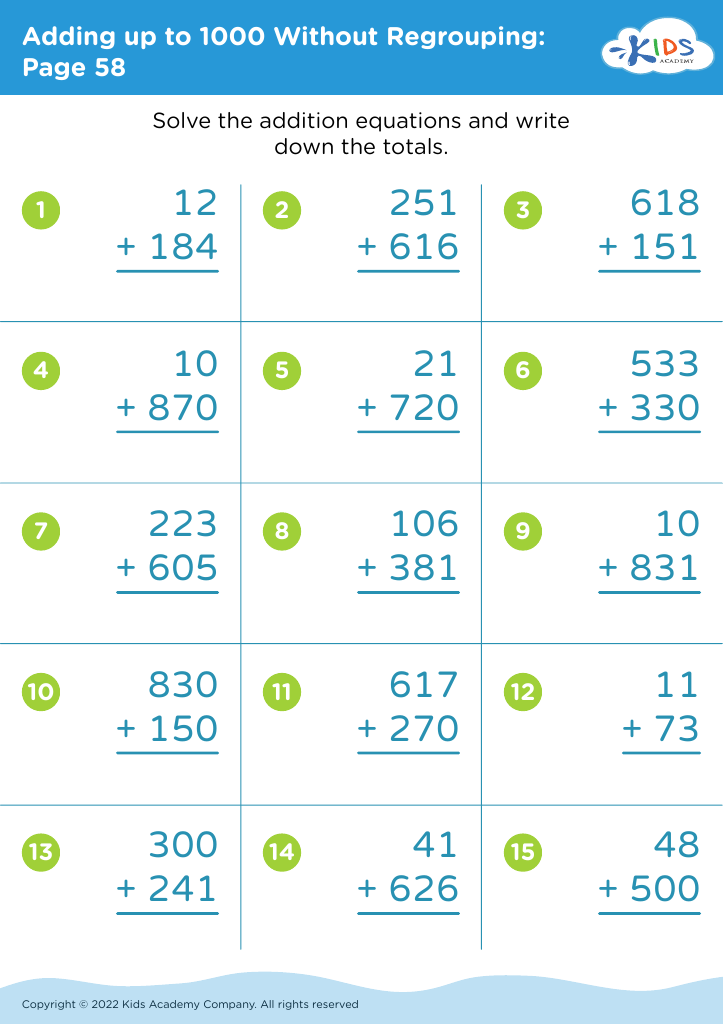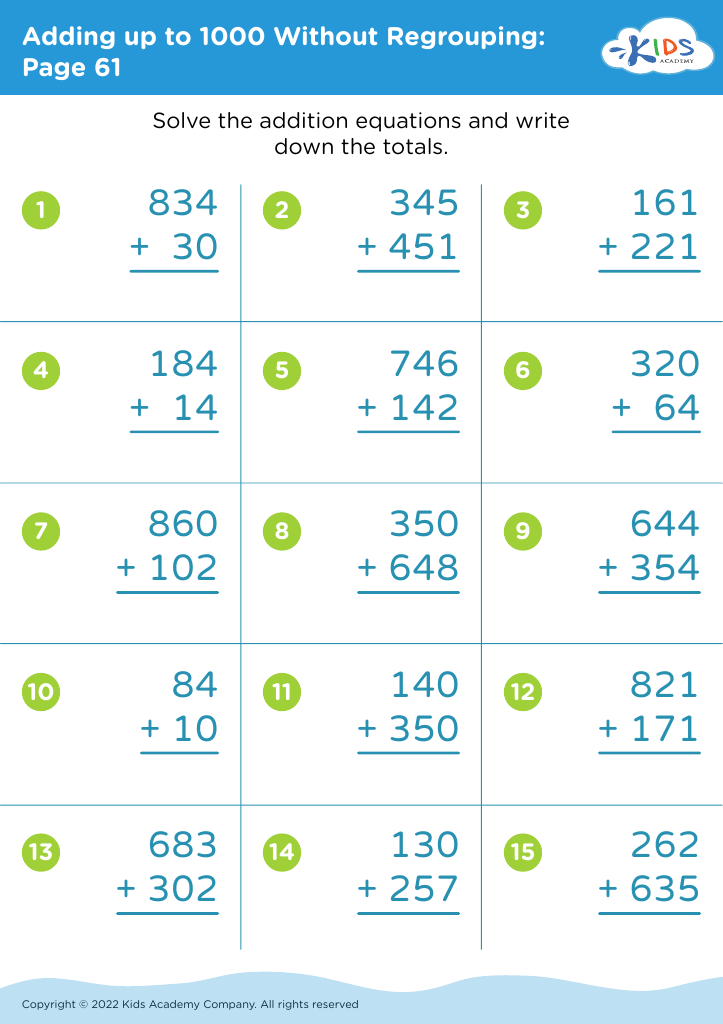Recognizing shapes Adding up to 1000 Without Regrouping Worksheets for Ages 4-8
3 filtered results
-
From - To
Discover our engaging "Recognizing Shapes Adding Up to 1000 Without Regrouping Worksheets" designed for children ages 4-8. These worksheets offer a fun way to build essential math skills while recognizing different geometric shapes. Each worksheet encourages young learners to practice addition skills without the complexity of regrouping, all while engaging with vivid illustrations. Ideal for classroom activities or at-home learning, our resources promote critical thinking and shape recognition through interactive problem-solving. Help your child develop confidence and proficiency in math, laying the groundwork for future success. Start exploring shapes and addition with our specially curated worksheets today!
Recognizing shapes and understanding numbers through addition are fundamental skills that form the building blocks of early math education. For children aged 4-8, these skills are not just academic requirements; they are essential tools for problem-solving and understanding the world around them.
Recognizing shapes fosters spatial awareness, which is crucial for developing logic and reasoning abilities. It helps children clarify their understanding of geometry, aiding later learning in mathematics and science. Moreover, shape recognition underpins activities like drawing, building, and even reading, impacting their creativity and language development.
On the other hand, learning to add numbers up to 1000 without regrouping nurtures strong computational skills. This ability supports children’s confidence in mathematics, setting a positive foundation for more advanced arithmetic. It's a vital aspect of number sense, helping children grasp the concept of place value and how numbers interact.
For parents and teachers, understanding these concepts and their importance is essential to foster a collaborative learning environment. Engaging kids in shape games or simple addition activities can reinforce these skills, fulfilling developmental milestones, enhancing critical thinking, and inspiring a lifelong love for learning. By prioritizing these foundational skills, adults help shape proficient, confident learners for the future.













